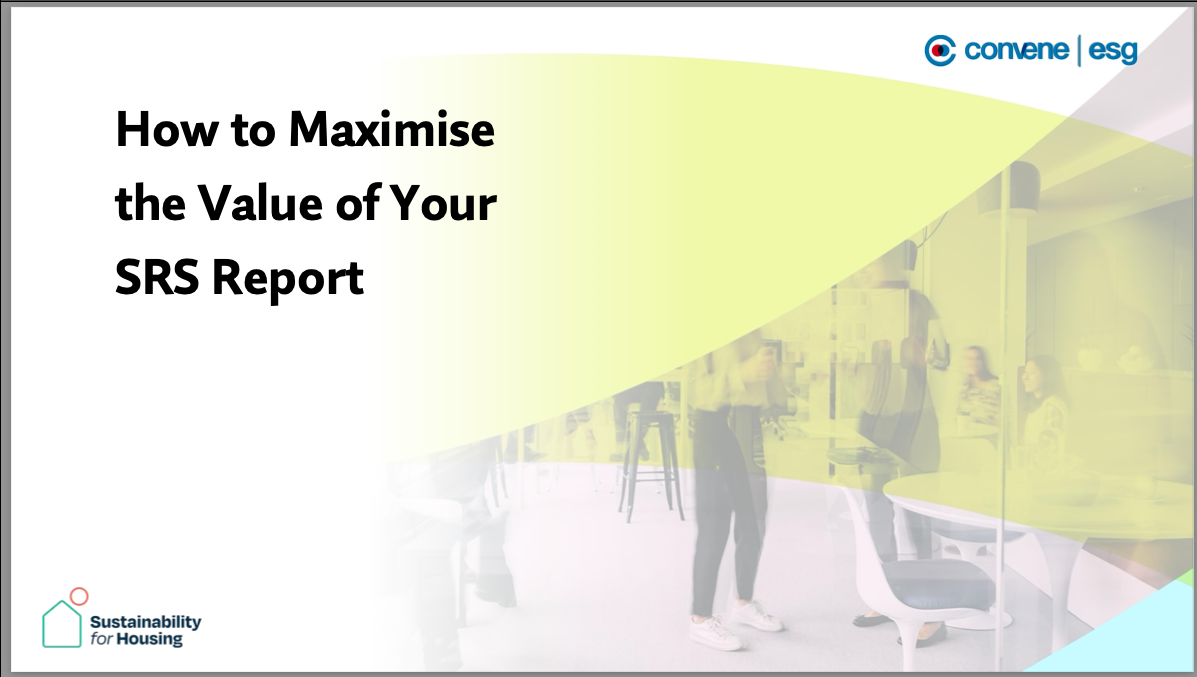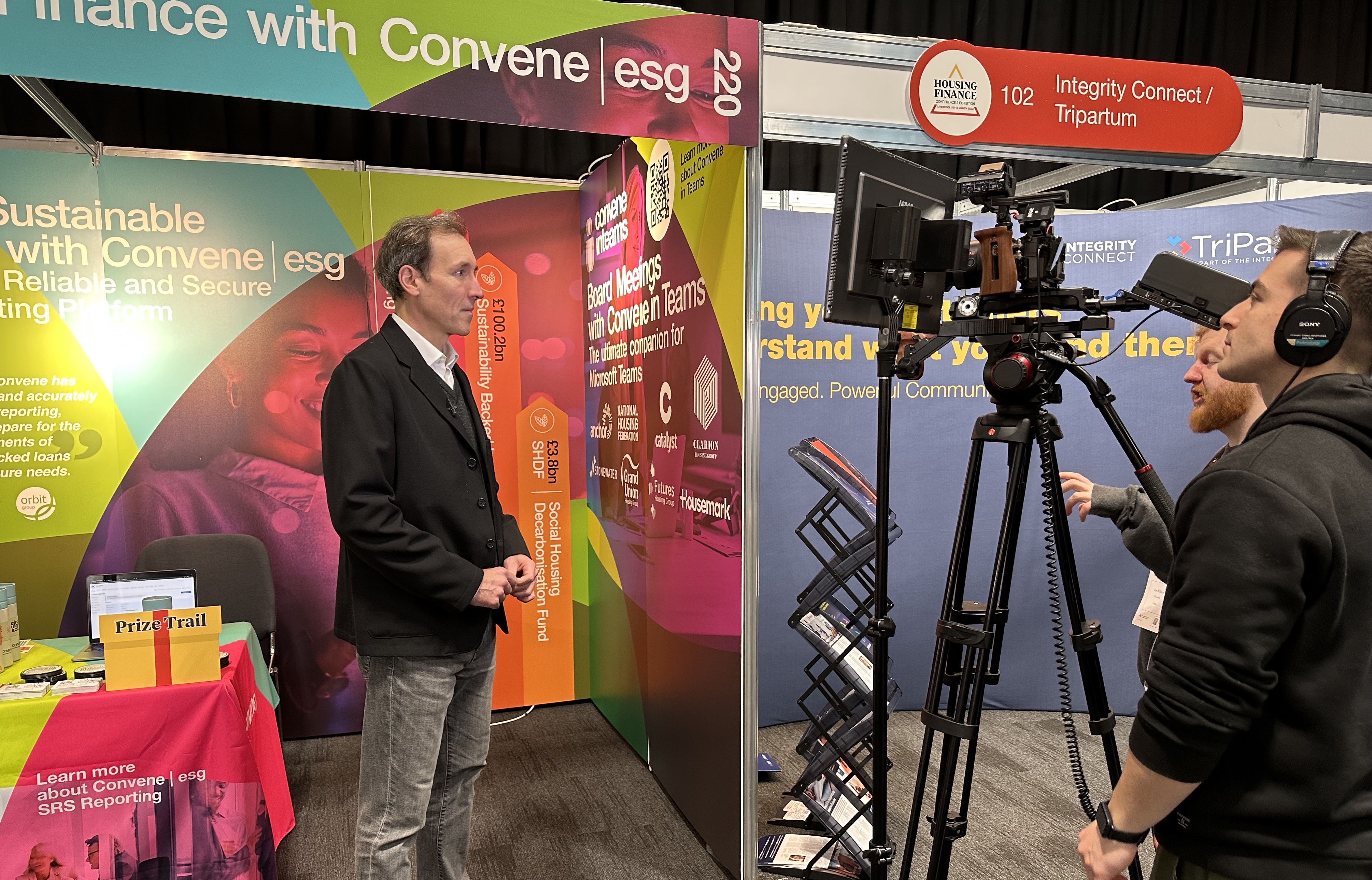Today Convene ESG sponsored Inside Housing’s Webinar on “ESG Reporting: Cutting through the complexity”, with guest speakers including Andy Smith(The Good Economy), Julie McDowell (Chair, Blackwood Housing), Russell Smith (ESG Lead, Orbit Group), Brendan Sarsfield (Chair, Sustainability for Housing) and our very own Arturo Dell (Convene ESG). We want to thank everyone for an insightful discussion into the status and future of ESG in Housing. In case you missed it, here are our key takeaways.
1) Start Your ESG Journey Now:
Both Brendan Sarsfield and Russell Smith raised the excellent point that ESG Reports don’t track a current status, they demonstrate a journey and show your improvements from year to year. ESG is highly likely to be something that Housing Associations will be required to report on. In 5 years time, the Housing Associations who will receive the most ESG funding will be those that can show demonstrable growth.
2) ESG Will Be Audited:
The international trends on ESG will impact the Housing Sector. Buildings are the 3rd biggest CO2 emitting industry, larger polluters are being held accountable, housing will be next. Brendan Sarsfield hypothesised that it won’t be long before the Housing Sector are required to publish reports including benchmarking, auditing and data quality assessments. This is already possible with labels such as Ritterwald and software such as Convene ESG, which provides a complete audit trail for the reporting process.
3) Managing ESG Processes Internally May Be Difficult In The Long Term:
Julie McDowell expressed the concern that smaller Housing Associations can’t afford to hire any external consultants or have an employee solely dedicated to ESG. However, with the expectation that ESG will become mandatory and the knowledge that ESG reporting and policies are just good business practices, Blackwood Housing decided to begin reporting.
Julie and the other panellists noted that the Housing Sector does not have that much experience with data collection. This is why the SRS is so useful, as Russell Smith pointed out, much of the information used in the SRS reports are data that is collected automatically.
On the other hand, with the lack of experience, can come “bad practices” of data collection. A common issue heard by Arturo Dell is endless spreadsheets and that collecting data has proven to be difficult because one person is responsible for all reporting.
Convene ESG can make all of this very simple for you.
How Can Convene ESG Help You?
Convene, working with our vast number of Housing Industry clients, have developed a new software tool, Convene ESG to help you produce the best ESG and SRS reports possible. By simplifying and automating much of the process, you can be sure that your ESG report building runs smoothly, so you can focus on developing your sustainable strategies.
With Convene ESG, you can develop a collaborative workflow, assigning certain sections of the ESG or SRS report to the required people. Once all the sections are filled in, Convene ESG will produce a formatted Word Document or spreadsheet ready for you to publish!
Convene ESG also has a built-in comparison feature, which allows you to benchmark against competitors' formatting of their publicly accessible reports, and their results! This will help the whole of the Housing Sector develop the best reports possible.
As a software provider already trusted by 100s of housing organisations, including Orbit Housing, you can trust us to provide you with dedicated service.
If you’d like to learn more, you can read about our early adopters here, or contact us for a free demo. Also keep an eye on our LinkedIn as we will be scheduling more free webinars soon!
Would you like to view our slides from the webinar? click here to download them.








